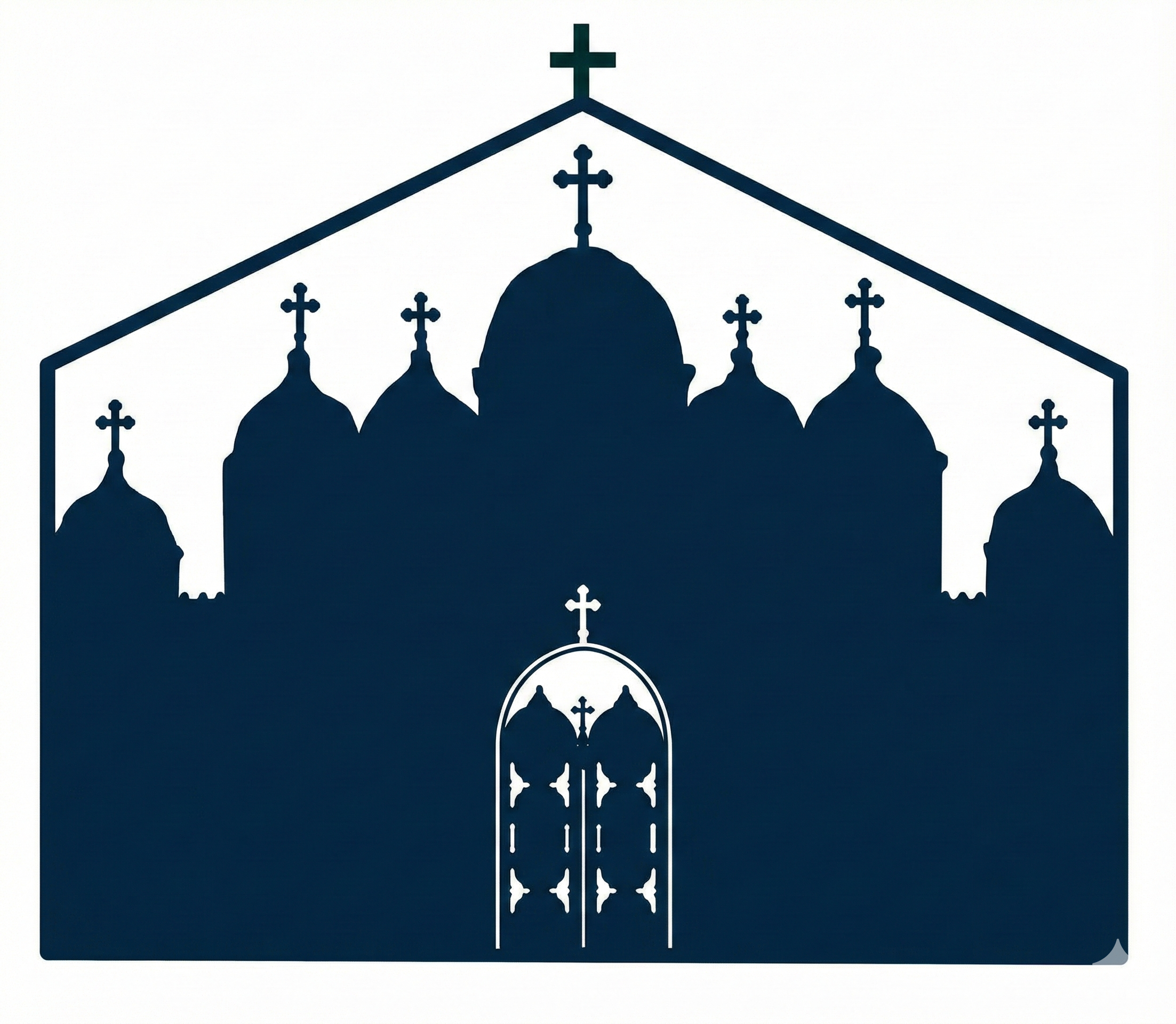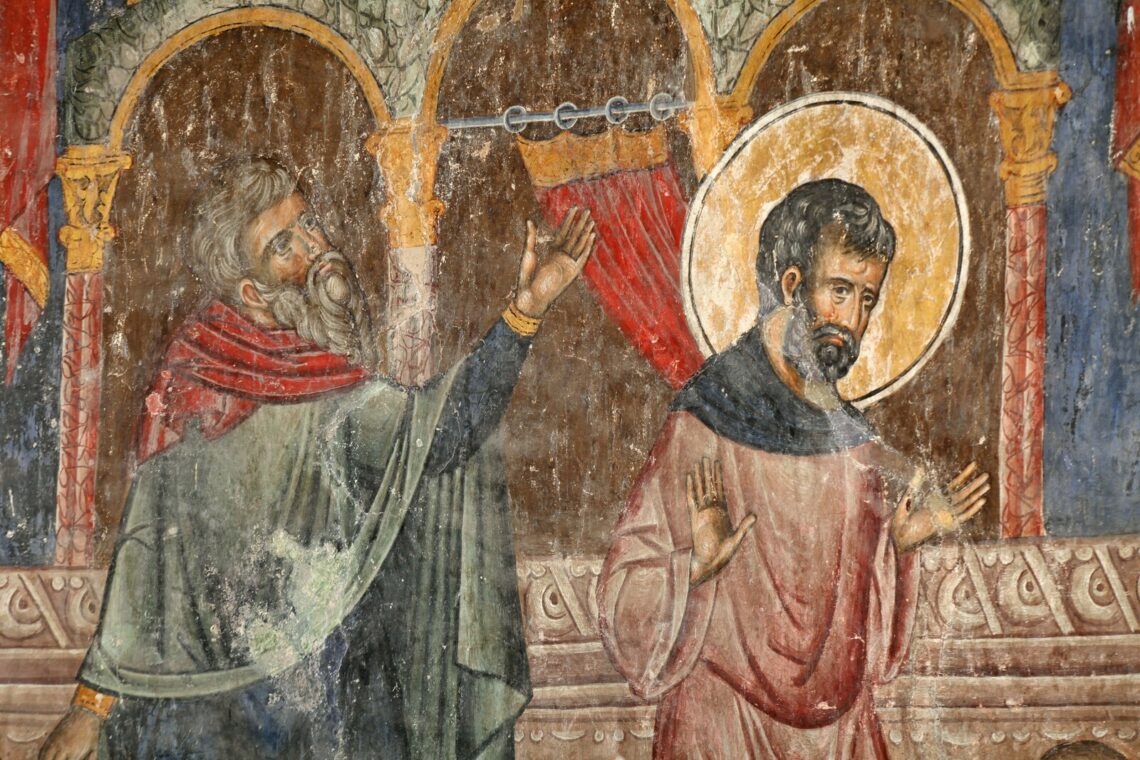Luke 18:9-14 2024/02/18
In the name of the Father and the Son and the Holy Spirit
Today’s Gospel that we just read contrasts the Pharisee in the temple who is proud of the righteous life he is leading and the Publican who simply beats his chest and prays, “God, forgive me, a sinner” without looking up from the corner of the Temple. Jesus teaches that this publican will be blessed by God because of his humble contrition. The message is, “Repent. Repent and be saved like this tax official.”
This parable of the publican and Pharisees is not simply read randomly today. In three weeks’ time, Great Lent will begin, and in another six weeks it will be Passion Week, where we remember the Lord’s Passion on the Cross, and the much-awaited Great Feast, Pascha. In the meantime, we will moderate our lives and pray more often, both in the church and in our daily lives. The theme of that prayer is always repentance. The first message of Christ’s preaching was, “Repent. The kingdom of God is at hand.” In order to truly enter into the joy of Pascha, the feast of the Kingdom of God, we must first of all repent. Today, three weeks before entering Great Lent, the Gospel calls for us to prepare our heart in advance.
So, what is contrition, and repentance.
The publican prayed like this. “God, forgive me, a sinner.” “I am a sinner.” He is not “that sinful man” that Pharisee says in prayer to God, looking sideways at the publican. “I am a sinner.” It is important to know this deeply. It’s not just about knowing. The publican prayed, “not lifting his eyes to heaven, but striking his breast.” When he came to know “I, a sinner,” he was overwhelmed and broken by it.
In prayer last night, we sang the following hymn: This is a prayer that is always sung at the eve of the Lord’s Day during the period of preparing weeks and Great Lent , from the Sunday of Publican and Pharisee.
“Christ, who gives us life, open the gates of repentance for me…”
It means “I can’t even repent, even know and mourn my sins, on my own. Please, break my hardened heart and let my tears of regret overflow…”
There is a harsh and bitter insight into the depth of our sins, to the extent that we are not aware of our sins. However, this hymn is truly beautiful, and when sung in unison, the church is filled with sweet joy. What a difference from the leaden voice that comes from somewhere in the bustle of a downtown area, telling you to “repent.”
This is because when we realize that we are sinners, our feelings are not “fear of punishment,” but rather “sadness” and “joy.” The more you repent and the more you realize your sinfulness, the more you will “not” tremble in fear of the punishment you receive in hell. We are happy that God has blessed me with a heart of mercy and repentance, and that He has opened the door to repentance, but on the contrary, I have been betraying the one who loves me so much for a long time. These joy and sorrow are mutually reinforcing and elevating each other. And at its culmination, we are finally blessed with tears.
The Orthodox Fathers called tears of contrition a gift from God. One holy father called it “a fountain of tears that washes away all sins.” These tears are our tears, but they are also the tears of Christ, God, who lives within us. There is no way that something so sweet could flow from our bitter lives, something so warm from our cold hearts, something so pure from our unclean hearts. That’s why these tears are a gift from God. These tears, the tears of Christ/God, wash away our sins. You could say that these tears themselves are proof of our salvation.
Repentance is the determination to return to God’s love in the midst of these overflowing tears of repentance. There is sadness there. But along with that sadness, there is also a joy. There is not fear because they have come to know God as love..

